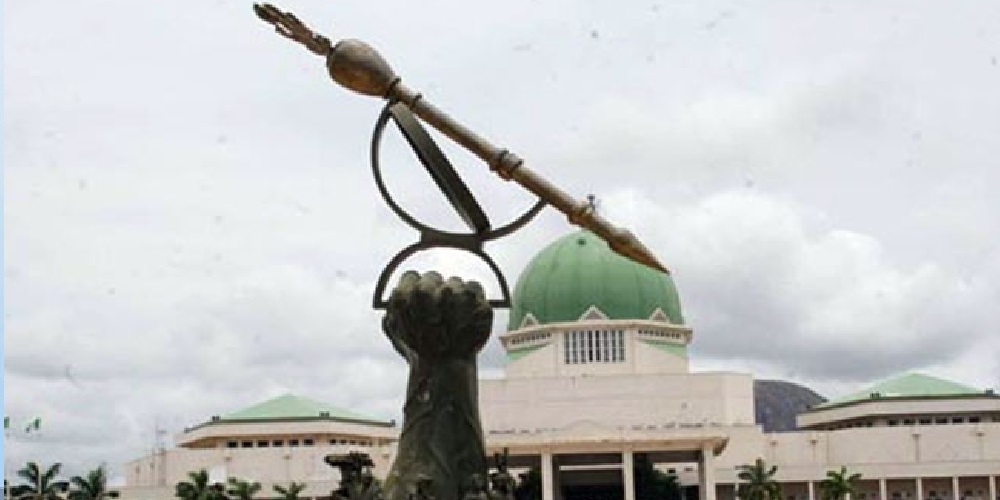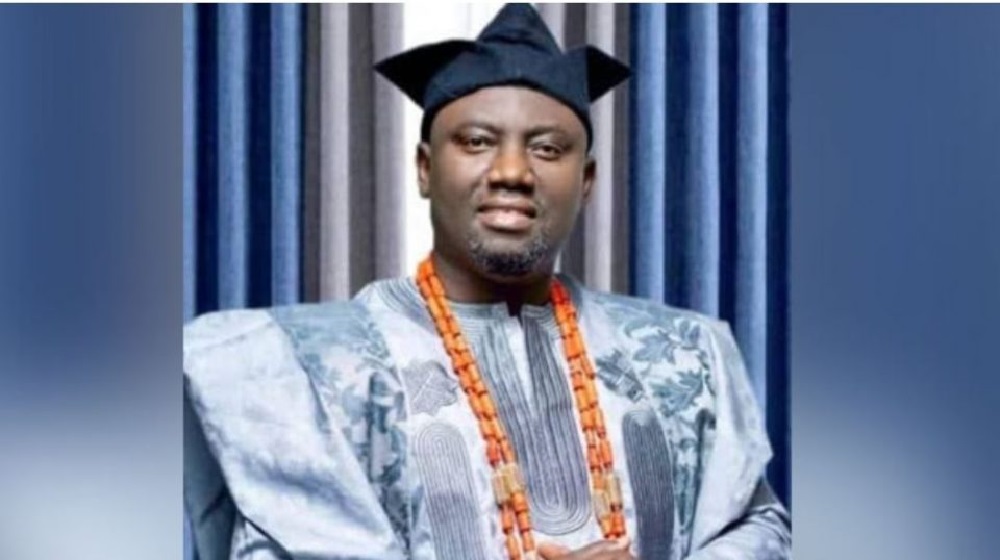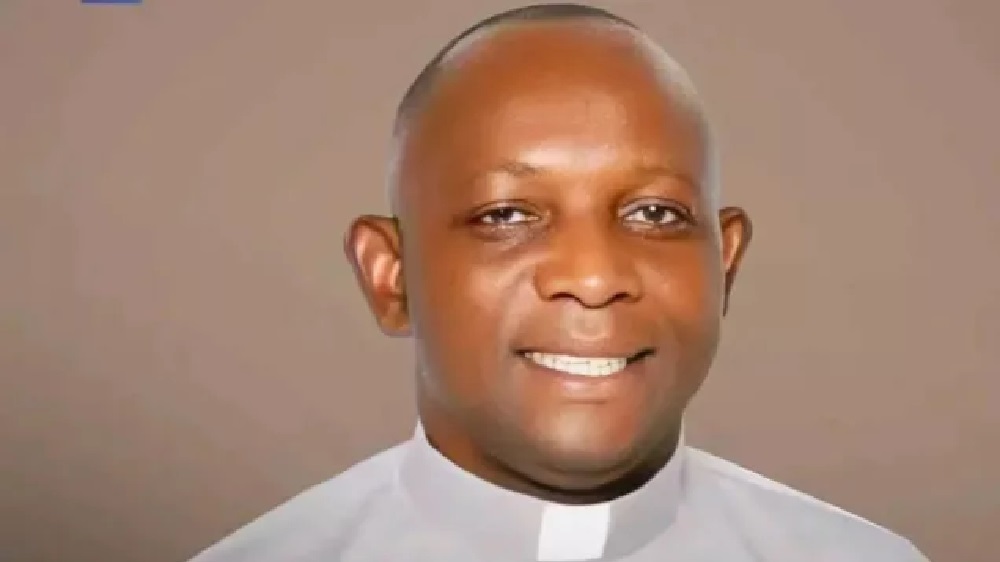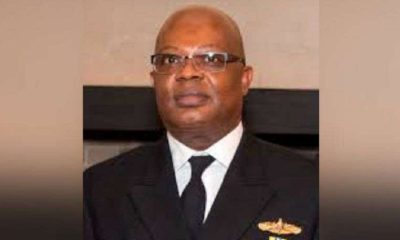News
National Assembly Considers Bill Proposing Return Of Nigeria To Regional Government

A bill proposing a return to regional government in Nigeria is before the National Assembly and is expected to passed into law before October 1, 2024.
Part of the draft bill circulating on social media, seen by SaharaReporters is titled: “A Bill for an Act to Substitute the Annexure to Decree 24 of 1999 with a New Governance Model for the Federal Republic of Nigeria.”
Although the identities of the sponsors of the bill were yet to be ascertained, the Bill when passed would be cited as the Constitution of the Federal Republic of Nigeria New Governance Model for Nigeria Act 2024.
The sponsors of the Bill explained that the current Constitution of the Federal Republic of Nigeria 1999 (as Amended) is not “autochthonous” as it does not evolve from the deliberations and consensus of the Nigerian people.
According to the advocates, the constitution amendment would be subject to a “yes or no” vote in a referendum by the people of the Federal Republic of Nigeria.
Part of the draft Bill seen by SaharaReporters on Friday partly read:
“PART I – Preliminaries: WHEREAS Nigeria, its Peoples and Government have been governed under Decree 24 of 1999 that was handed down by the then Military Government without the express consent of the people despite the preamble of “We the people.”
“WHEREAS the said Constitution of the Federal Republic of Nigeria 1999 (as Amended) is not autochthonous as it does not evolve from the deliberations and consensus of the Nigerian People.
“WHEREAS the Peoples of Nigeria now desire and effectively demand for a change to a Constitution based on Federal/Regional System of Government.
“WHEREAS the Federal and Regional governments are to operate within the provisions of this Constitution, it is within the discretion of the ethnic blocs within the States that constitutes a given region to aggregate or disaggregate as Provinces, Divisions and Districts, while being in control of their affairs without let or hindrance at whatever level of governance.
“Whereas the 1999 Constitution as amended is a schedule of a military decree now deemed to be an Act of the National Assembly for which the National Assembly have the powers to amend and/or abrogate as expedient.
“Whereas the National Assembly where so necessary and expedient can invoke the doctrine of necessity to resolve any point of law for the good governance of the country Nigeria.”
On PART 11 – Substitution Clause, the drafters proposed that the National Assembly shall invoke its inherent powers to expunge the schedule attached to decree 24 of 1999 often referred to as 1999 Constitution as amended from the decree, which “is now deemed to be an Act of the National Assembly to which the National Assembly have the powers to so do and replace same with a new governance model for Nigeria effective not later than October 1, 2024.”
“This amendment is subject to a yes or no vote in a Referendum by the people of the Federal Republic of Nigeria,” it proposed.
On governance structure under PART III – Stipulations for Federal Administration, the sponsors proposed that: “(1) Nigeria shall be a Federation comprising of Regional Territories and a Federal Capital Territory and shall be a Republic to be known by the name of the Federal Republic of Nigeria.
“(2) The territorial jurisdiction of Nigeria shall comprise the territory of the Regional members of the Federation and its boundaries shall be as determined by international agreements
“3.2 Basis of the Federation: “(1) Every Ethnic Nationality and People in Nigeria has an unconditional right to self-determination within here delineated territories.
“(2) The sovereignty, powers and authority to formulate the articles of association towards any reform of the Central Federal Government of Nigeria, at any other time shall lie jointly and severally with all the ethnic nationalities occupying their respective territories.
“(3) Every Ethnic Nationality and People in Nigeria has the right to a full measure of self-government which includes the right to establish institutions of government in the territory that it inhabits and to equitable representation in the Federal and Regional Governments.
“(4) A “Ethnic Nationality or People” for the purpose of this Constitution, is a group of people who have or share large measure of a common culture or similar customs, mutual intelligibility of language, belief in a common or related identities, a common psychological make-up, and who inhabit.”
News
Oyo tightens security in preparation for Alaafin’s Saturday coronation

As the coronation of the 46th Alaafin of Oyo, Oba Akeem Owoade, takes place on Saturday, April 5, 2025, the Oyo State government has put in place heightened security measures, including the deployment of security operatives at strategic locations within the ancient city and surrounding communities.
Oba Owoade, who was presented with the staff of office and instrument of office on Monday, January 13, 2025, at the Governor’s Office in Ibadan, ascends the throne after the late Oba Adeyemi passed away.
The new monarch completed the compulsory 21-day traditional rites known as Oro Ipebi last Saturday, March 29.
The coronation event will take place at Oliveth Baptist High School in Oyo, where Governor Seyi Makinde is expected to lead a host of dignitaries, including notable Nigerians.
Other venues for the event include Ladigbolu Grammar School, Durbar Stadium, the Oba Lamidi Adeyemi Mini Stadium, and the Palace of the Alaafin of Oyo.
Among the dignitaries expected are the former Prime Minister of Canada, Justin Trudea, ambassadors from four different countries, over 200 Oyo indigenes based in Canada, traditional rulers, diplomats, and various government officials.
Security arrangements have been significantly enhanced ahead of the ceremony.
Police vans and other security agency vehicles have been stationed at strategic points across the town, including Owoade, Jabata, Akesan, Isale Oyo, Eleekara, and the School of Survey, among other key areas.
A senior police source confirmed to our correspondent on Thursday that additional personnel have been deployed to the town to prevent any breakdown of law and order during the event.
“The police, in conjunction with other security agencies, are fully prepared to ensure a smooth and trouble-free event,” the source assured.
Meanwhile, local hotels have reported full bookings, with accommodations made for the influx of visitors expected for the coronation.
A hotel manager, who requested to remain anonymous, mentioned, “We have upgraded our facilities to ensure that our guests have a memorable stay. The security agencies have also assured us of adequate protection for our facilities.”
Additionally, reports indicate that the popular Akesan market, along with other nearby markets, will be temporarily closed during the coronation to allow the active participation of local market men and women in the event.
News
Court dismisses suit against coastal road project

The Federal High Court in Lagos has struck out a suit by the Okun-Ajah community and other property owners in the Eti-Osa Local Government Area challenging the Lagos-Calabar coastal road project.
Justice Akintayo Aluko ruled that the court lacked jurisdiction to adjudicate on the suit marked FHC/L/CS/1488/2024.
The judge transferred it to the Lagos State High Court as the appropriate court to hear the case.
The plaintiffs are Chief Saheed Olukosi (Akogun of Okun-Ajah Community), Noibi Issa Afolayan, Yussuf Odunuga Sulaiman, Olufemi Fasehun and Adeola Tokunbo, all representing Okun-Ajah Community and other Concerned Property Owners at Okun-Ajah Community.
The defendants/objectors are Minister of Works Dave Umahi, Attorney-General of Lagos, Hitech Construction Limited and other agencies.
The plaintiffs’ through their lawyers, A.O. Ajiboye, Esq, and E. C. Okorie had asked the court to stop the project on several grounds.
But the defendants/objectors prayed the court to strike out the suit for lack of jurisdiction.
Justice Aluko held: “Counsel to the plaintiffs made an alternative submission in his written address urging the court not to strike out this suit if the court finds that it lacks jurisdiction to adjudicate over the case.
“Counsel urged the court to transfer this suit to the State High Court instead of striking out same.
“I agree with counsel on this request as this court possesses the needed power and jurisdiction to accede to such prayer.
“This court is fortified under Section 22(2) of the Federal High Court Act which provides thus: ‘No cause or matter shall be struck out by the court merely on the ground that such cause or matter was taken in the court instead of the High Court of a State or of the Federal Capital Territory, Abuja in which it ought to have been brought, and the Judge of the court before whom such cause or matter is brought may cause such use or matter to be transferred to the appropriate High Court of a State or at the Federal Capital Territory, Abuja in accordance with Rules of Court to be made under section 44 of this Act.”
News
U.S. backs Nigeria, demands justice for slain Kaduna Priest

The U.S. Mission in Nigeria has expressed support for the Nigerian government’s efforts to pursue justice following the tragic killing of Father Sylvester Okechukwu in Kaduna.
In a statement released today, the mission emphasized the crucial role of Nigeria’s judicial system in ensuring accountability and due process throughout the investigation and trial.
“We welcome the Nigerian government’s interest in pursuing justice and emphasize the critical role of the judicial system in ensuring due process and accountability,” the statement read.
The mission also urged for a transparent legal process, stressing the importance of a fair and swift trial to establish the innocence or guilt of the accused.
The U.S. Mission’s call underlined the need for the rule of law to be upheld to provide justice not only for Father Okechukwu but also for other victims of similar violence across the country.
The statement concluded by highlighting that transparency in legal proceedings would help provide closure for the victims’ families and communities, assuring them that justice would be served.
-

 News17 hours ago
News17 hours agoNatasha: Kogi PDP hammers Ododo, reiterates unfeigned support for her
-

 Economy16 hours ago
Economy16 hours agoSEE Black Market Dollar To Naira Exchange Rate Today 3rd April 2025
-

 News23 hours ago
News23 hours agoRivers APC demands Fubara’s probe over ex-HoS allegations
-

 News11 hours ago
News11 hours agoJust in: “Ignore rumour mongers, there was no time I collapsed “-Wike asserts
-

 News12 hours ago
News12 hours agoCJ transfers Natasha’s case to Justice Nyako
-

 News15 hours ago
News15 hours agoJust in: INEC dumps recall petition against Sen Natasha
-

 News8 hours ago
News8 hours agoWe’re putting together new 2025 Budget for Rivers-Ibas
-

 News19 hours ago
News19 hours agoJust in: Finally, Trump imposes 14% tarriff on Nigeria oil, others





